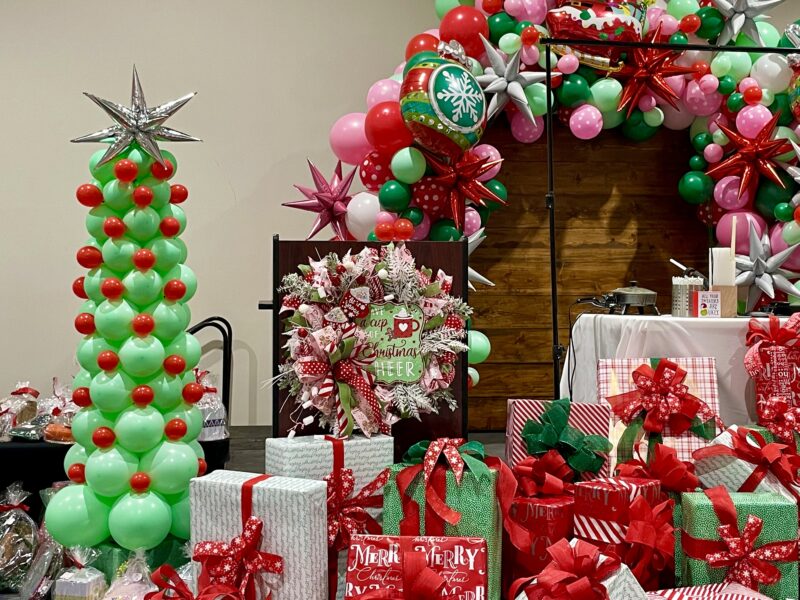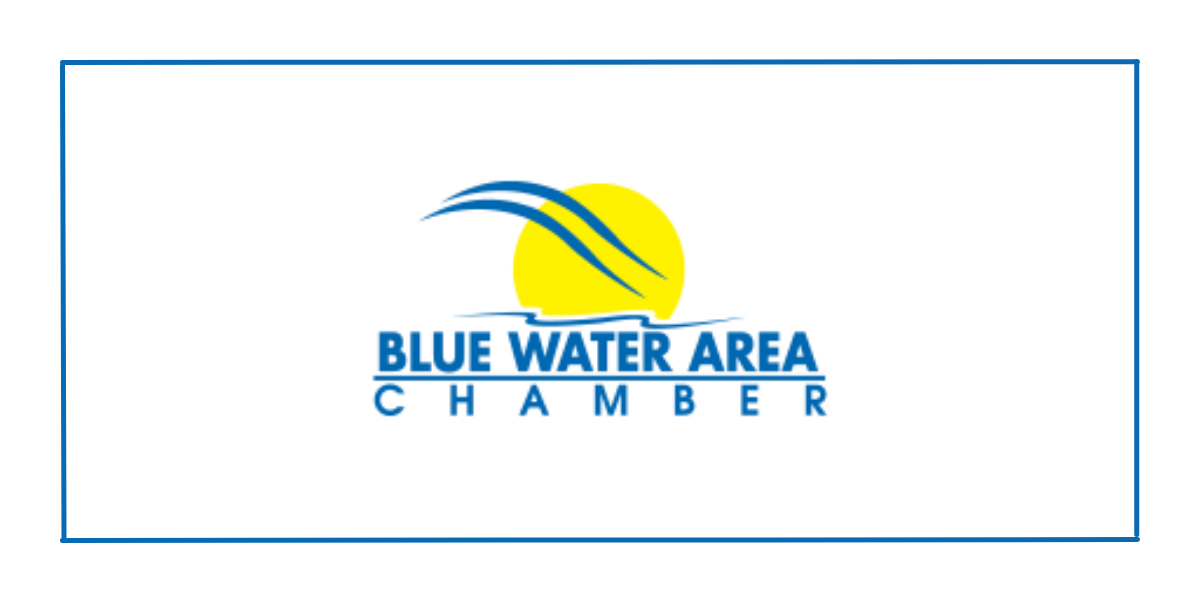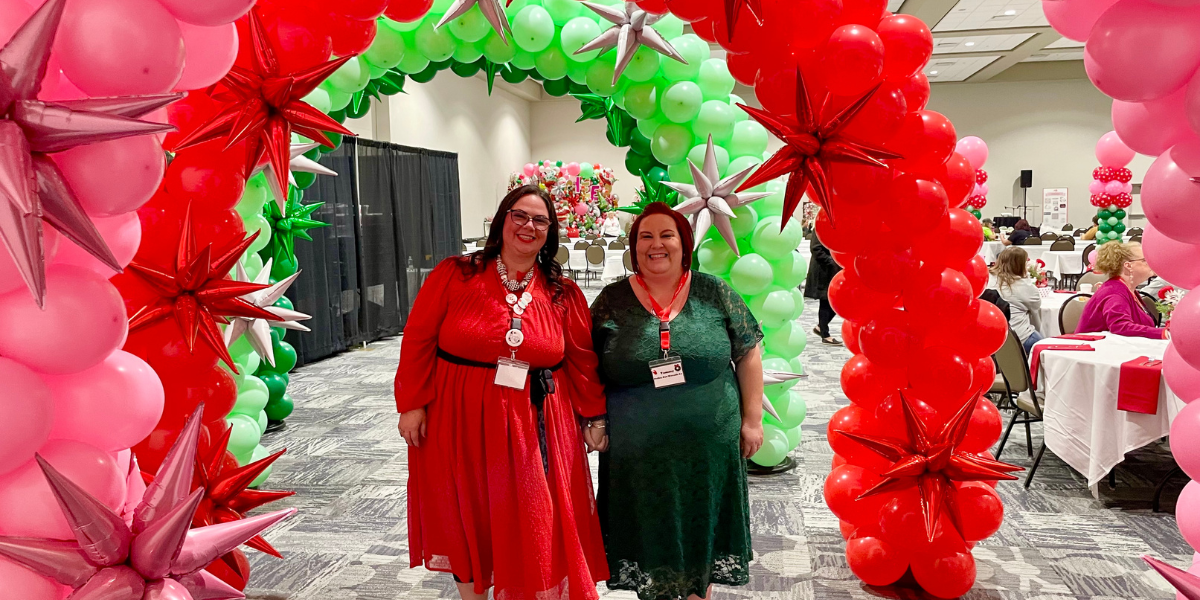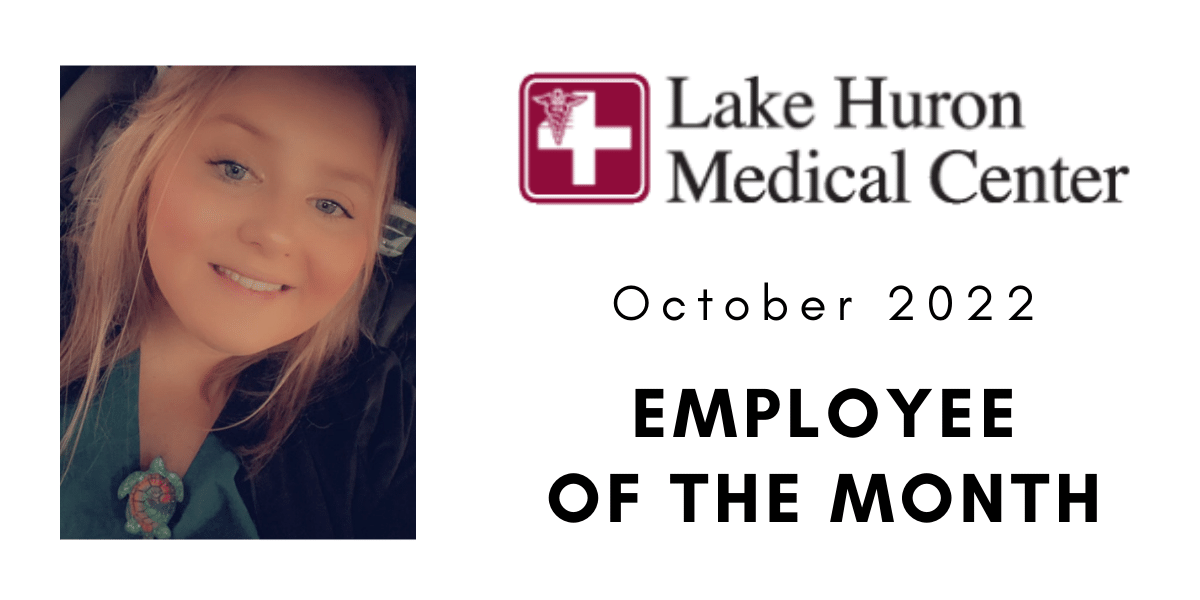Melissa Morrow is known as Coach Mel on her social media channels, Sincerely Creative Mom. She and fellow-influencer Tammy Hodges of Polka Dot Wreath Co. from Springfield, MO brought their online creative coaching group together for a “Fill Your Creative Cup With Cheer” weekend event at the Blue Water Convention Center.
Melissa and Tammy both left professional careers after their online passion for making wreaths, garlands, and teaching others crafting skills became their full-time jobs.
With almost 200,000 followers between them, they both make a living providing free and paid How-To videos on their social channels. They also sell the products they make and are coaches to those who want to learn how to craft and run their own business.

One of the greatest rewards of their businesses are the relationships they’ve built with the people they coach.
“These people in this room are some of the best in the world. They’re like family to us. One lady has been a follower of mine for 3 years, and I met her for the first time in-person tonight, but I said, “My gosh! I feel like I’ve known you forever!” said Tammy.
Tammy and Melissa have several students in their coaching group that have started from scratch, learned how to create beautiful crafts, and gone on to build 6 and 7 figure incomes.
“It’s a big deal to go from working in a cubicle, I was a middle school teacher, Mel was in the CPA industry, and I was making $32,000 a year, and now I’m getting to live this dream. Now, I get to play all day in ribbon and hang out with friends and have a slumber party at a convention center all weekend,” said Tammy.
Melissa said a job change and discovery of another Facebook influencer inspired her to start creating wreaths to boost her income. Being in control of her time and doing what she loves has led to many positive outcomes for her and her family.
Tammy’s husband suffered a traumatic brain injury during military service in Afghanistan. Creating Polka Dot Wreath Co. has enabled her to care for him while also boosting the family income. She started the business when they were stationed at Fort Bragg, and it has grown over the last 9 years to something she could never have imagined.

This weekend’s “Fill Your Creative Cup With Cheer” event was a chance for Melissa and Tammy to connect face-to-face, hop on a stage to demonstrate decorating techniques with their colleagues, and do make-n-take projects together with participants. The conference was sold out with tickets going for $750.
“We’re spoiling them! We wanted to pour into them the way they’ve given to us.” said Tammy.
“We wanted this to be very purposeful,” said Melissa. “We wanted this to be an event that we would want to go to
To learn more, visit Sincerely Creative Mom and Polka Dot Wreath Co. on Facebook and Instagram.
Reporting for WGRT – Jessie Wiegand








